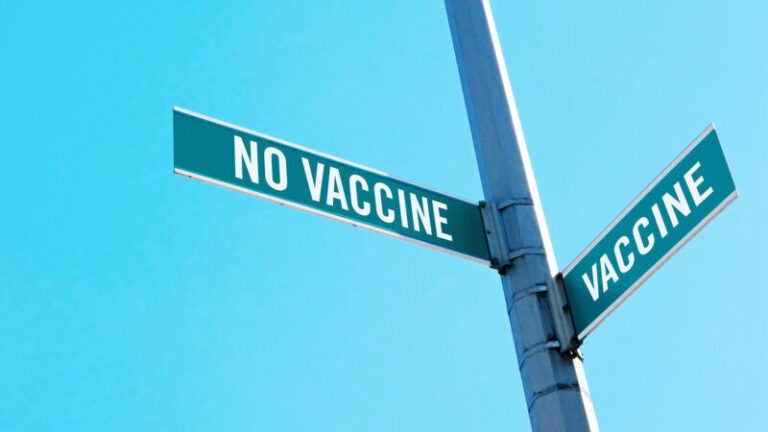
Moral values explain differences in COVID-19 vaccination rates across U.S. counties
Even though COVID-19 vaccines are safe, effective and widely available in the United States, many Americans are still hesitant to get vaccinated. Indeed, there are stark disparities in COVID-19 vaccination rates across the United States: In some counties, almost all residents are vaccinated while, in other counties, only a minority of residents are vaccinated.
A new study from USC researchers sheds light on the beliefs that underlie these disparities in vaccination rates.
The study, published Wednesday in American Psychologist, found that, beyond structural barriers, such as access to health care, and political barriers, we need to consider Americans’ moral values to understand the stark disparities in COVID-19 vaccination rates.
“The goal of our research was to understand how regional differences can help us explain differences in vaccination rates beyond the structural barriers, and indeed that’s what we found,” said Nils Karl Reimer, study co-author and postdoctoral researcher at the USC Dornsife College of Letters, Arts and Sciences. “Moral values help explain these differences, above and beyond the well-known variables of political ideology and structural barriers.”
Top factors determining vaccination acceptance: fairness, loyalty and purity
The study rests on moral foundations theory, which argues there are five basic moral foundations: care, fairness, loyalty, authority and purity.
The researchers’ analysis found moral concerns about fairness, loyalty and purity influenced county-level vaccination rates, but not care or authority.
“We found that some values that are traditionally associated with conservatism were associated with lower vaccination rates, the biggest of which was a desire for bodily and spiritual purity,” Reimer said.
On the other hand, counties with higher loyalty were 1.14 times more likely to have higher rates of vaccination.
Placing a high value on fairness was associated with a 2% increase in vaccination rates in similar conditions.
Anti-vaccination tied to higher valuation of purity, regardless of political party
The researchers said that while their hypotheses were largely borne out by the study, a few surprising trends emerged. The authors noted that loyalty is typically associated with conservative values, which in turn are associated with vaccine skepticism. However, the study found that loyalty is associated with higher vaccination rates — but only when controlling for the four other moral foundations.
“The loyalty finding is quite surprising because there is a lot of rhetoric about anti-vaccination among conservatives. However, what we’re showing is that typical conservatives do not tend to be anti-vaxxers,” said co-author Morteza Dehghani, associate professor of psychology and computer science at USC Dornsife. “The anti-vaxxers tend to be not high on loyalty, but high on purity. These include conservatives who are low on loyalty, and also liberals who tend to prioritize purity concerns, most likely focusing on bodily aspects of purity contamination (‘My body is a temple and it should not be contaminated’).”
“It is a sentiment you might find on both sides of the aisle,” Reimer added, “and I think that’s the great value of our approach because it gives a more fine-grained analysis.”
Findings could improve communication to improve vaccination rates
The findings present policymakers and public health communicators with data by which to better reframe their public health communications related to the pandemic. The researchers suggest appealing to loyalty concerns by framing vaccination as a patriotic duty. In regions high in purity, they suggest emphasizing the vaccine’s ability to protect from contaminating disease.
“These things are, importantly, mere speculation before further experiments,” Reimer said, “but our findings could point toward public health messaging that could be tested.”